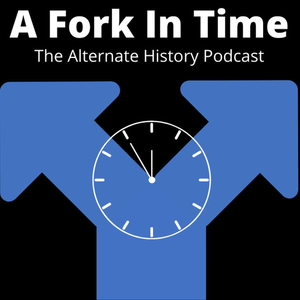
Aristophanes’ Frogs
05/25/14 • 29 min
Dr. Heather Sebo begins by discussing the proposal in the parabasis of Aristophanes Frogs that clemency be extended to citizens exiled for their involvement in the oligarchic coup of 411 BCE. An instance of Aristophanes’ immersion in the issues and debates of his times is the way he alludes to the debasing of the coinage (discussed in a previous lecture), using it as a metaphor for the idea that good citizens are in exile while slaves become citizens. Also revealing of contemporary attitudes is the shift in Dionysos’ initial intention to bring Euripides back from Hades because he finds his poetry thrilling and stimulating to his ultimate decision for Aeschylus as the poet most likely to encourage patriotism and unquestioning self-sacrifice in the current military emergency.
Copyright 2014 La Trobe University, all rights reserved. Contact for permissions.
Dr. Heather Sebo begins by discussing the proposal in the parabasis of Aristophanes Frogs that clemency be extended to citizens exiled for their involvement in the oligarchic coup of 411 BCE. An instance of Aristophanes’ immersion in the issues and debates of his times is the way he alludes to the debasing of the coinage (discussed in a previous lecture), using it as a metaphor for the idea that good citizens are in exile while slaves become citizens. Also revealing of contemporary attitudes is the shift in Dionysos’ initial intention to bring Euripides back from Hades because he finds his poetry thrilling and stimulating to his ultimate decision for Aeschylus as the poet most likely to encourage patriotism and unquestioning self-sacrifice in the current military emergency.
Copyright 2014 La Trobe University, all rights reserved. Contact for permissions.
Previous Episode

Aristophanes’ Frogs (handout)
Dr. Heather Sebo begins by discussing the proposal in the parabasis of Aristophanes Frogs that clemency be extended to citizens exiled for their involvement in the oligarchic coup of 411 BCE. An instance of Aristophanes’ immersion in the issues and debates of his times is the way he alludes to the debasing of the coinage (discussed in a previous lecture), using it as a metaphor for the idea that good citizens are in exile while slaves become citizens. Also revealing of contemporary attitudes is the shift in Dionysos’ initial intention to bring Euripides back from Hades because he finds his poetry thrilling and stimulating to his ultimate decision for Aeschylus as the poet most likely to encourage patriotism and unquestioning self-sacrifice in the current military emergency.
Copyright 2014 La Trobe University, all rights reserved. Contact for permissions.
Next Episode

The Classical Legacy (handout)
Has Greek history had any impact on the modern world? Are the literature, art and architecture of the ancient Greeks still relevant centuries later? In this lecture Sarah Midford examines the enduring appeal of classical Greece and the ways in which its culture has both moulded Western society and also been manipulated by it.
Copyright 2014 La Trobe University, all rights reserved. Contact for permissions.
If you like this episode you’ll love
Episode Comments
Generate a badge
Get a badge for your website that links back to this episode
<a href="https://goodpods.com/podcasts/ancient-greece-city-and-society-518/aristophanes-frogs-57410"> <img src="https://storage.googleapis.com/goodpods-images-bucket/badges/generic-badge-1.svg" alt="listen to aristophanes’ frogs on goodpods" style="width: 225px" /> </a>
Copy




